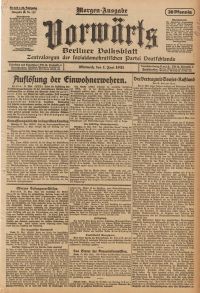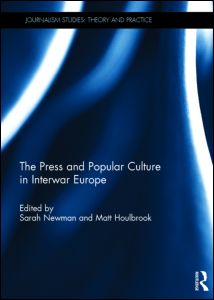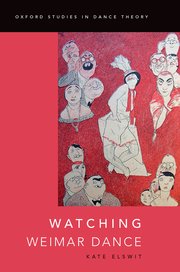 Public broadcaster SWR has digitized debates in the Reichstag which had been recorded by the Berliner Rundfunk between 1931 and 1933, from budget debates to discussions about unemployment and Hitler’s speech after the burning of the Reichstag. The material runs 24 hours in total and documents the deteriorating political culture in the German parliament.
Public broadcaster SWR has digitized debates in the Reichstag which had been recorded by the Berliner Rundfunk between 1931 and 1933, from budget debates to discussions about unemployment and Hitler’s speech after the burning of the Reichstag. The material runs 24 hours in total and documents the deteriorating political culture in the German parliament.
Welcome to the Weimar Studies Network
The Weimar Studies Network (WSN) is an international platform for researchers and academics working on the history of the Weimar Republic.
It offers information on recent publications, up-coming events and on-going research projects on the politics, culture and society of the interwar years in Germany.
The WSN is open to anybody with an interest in the history of Weimar Germany.- Architecture Art History Berlin Biography Conference Cultural History Economic History Education Exhibition Fashion Foreign Policy Gender General History History of Science History of the Everyday Intellectual History Journal Legal History Literature Media History Military History National Socialism Political History Religious Culture Resource Social History Theatre & Film Transnational History Visual Culture
Blogroll









